

Creative polymath Jenny Hval has always followed her own rules, furthering her expansive creativity through music, literature and performance. With a new album out this month, writer Derek Robertson meets Jenny to find out why a creative’s quest is never over.
Jenny Hval has always approached art on her own terms. She recounts being told how, just a few years old and on a guided tour of a museum with her family, she decided she’d had enough of the commentary. “Apparently I got bored of the talking because I just wanted to see stuff, so I started saying ‘Don’t talk!’ over and over again to the guide,” she says. “I guess I wanted my own experience.”
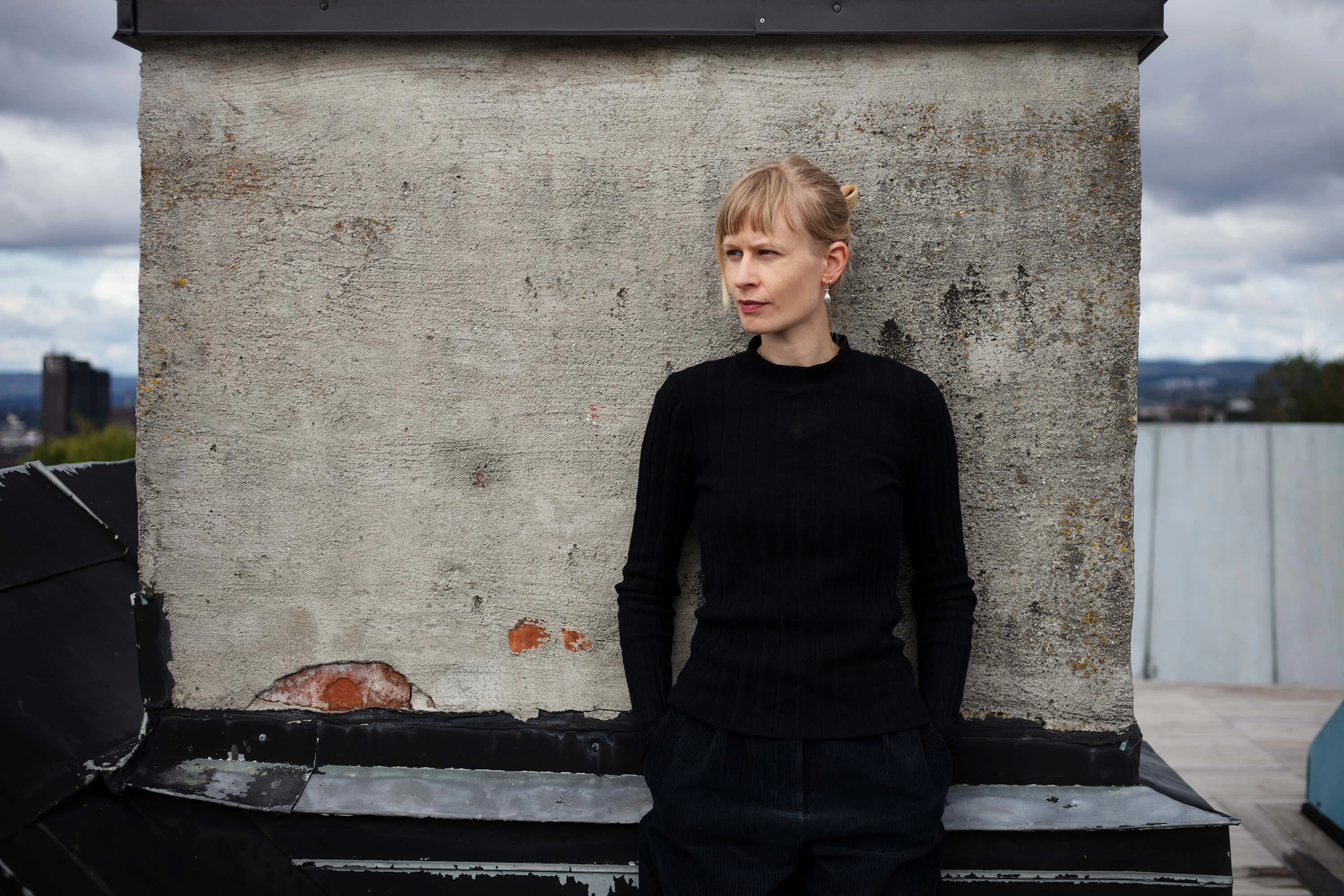
It’s an attitude the multi-disciplinary Norwegian artist has maintained throughout her career. Questioning comes naturally to Jenny, as does a love of language and narrative; as a child, unhappy with the endings of the Astrid Lindgren books she was reading, she wrote more chapters. “From very early, I identified with being a writer and always wanted to write things,” she explains. “I didn’t really think of music that way.”
Yet music is what she’s primarily known for. Across six full-length albums – the first two of which were released under the name Rockettothesky – she has defiantly explored the boundaries between art and pop while finding new ways to provoke and delight. Sex, desire, anxiety, and the lurid world of bodily functions are favoured topics, all swirled into a spectral, intense brew. Bold too: “I arrived in town…with an electric toothbrush… pressed…against…my…clitoris” opens Viscera, her first record under her own name; “At night I watch people fuck on my computer” occupies the same position on Innocence Is Kinky.
Rather than just playing the music, it’s important to show how people can exist together.
“I’ve read more poetry than song lyrics in my lifetime, and I find most modern poetry to be very stark and honest,” she says of such explicitness. “And so the language of that is very different to the lyrical imagery of music.” Jenny writes fast, in an almost stream-of-consciousness way – “automatic writing” she calls it – and rarely thinks about themes or does research. Nor does she try to squeeze words into pre-written melodies. “Mostly my songs structure themselves out of a lyric, not the other way around. And that makes me disinterested in finding the right words to fit the rhythm or the phrasing. This is how I like things to be; when I write freely, I don’t have to stop and ponder. I can just move on.”
Trying to boil her work down to any sort of definitive ideology is futile – the complexity and singular nature of Jenny’s writing is, in and of itself, a beauty worth revelling in. “What is soft dick rock?” she asked on the cosmic Apocalypse, girl, a question that became a convenient hook for tabloid “sharpening” – essentializing something in order to package and sell it. Having such an expansive, challenging record reduced in such a way left her wary, but while many artists feel uneasy discussing the meaning behind their work or the creative process, Jenny considers it to be “very valuable”.
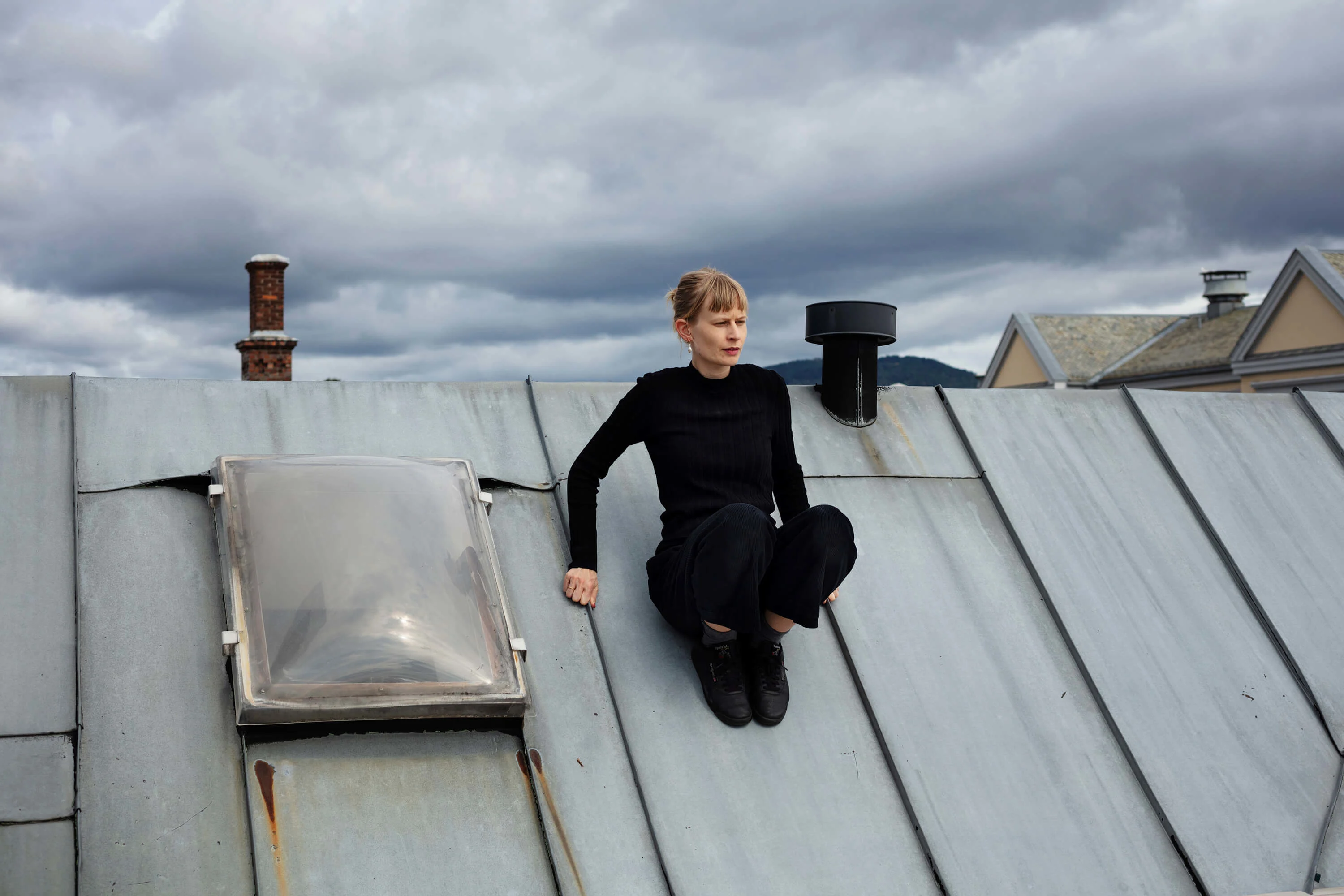
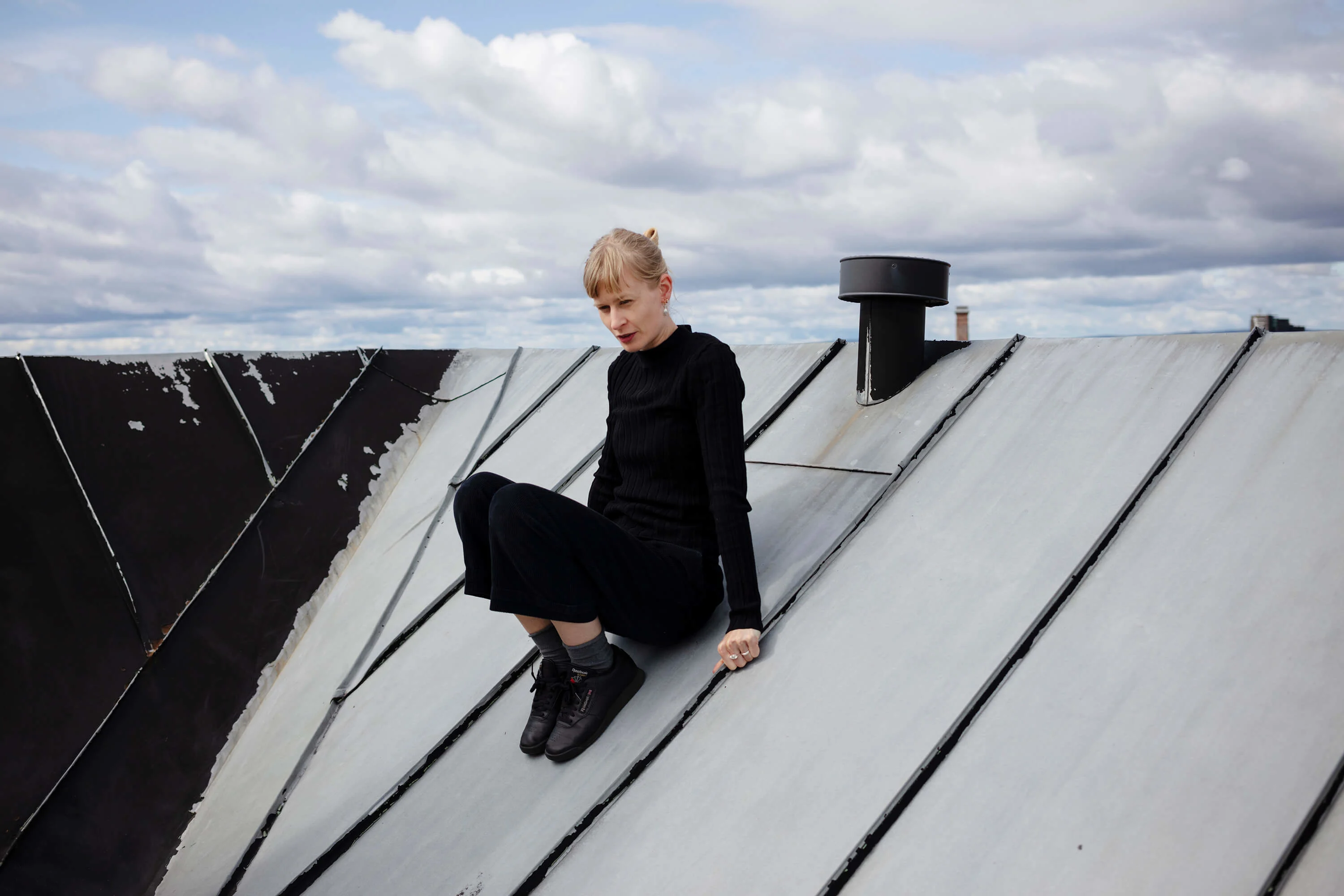
“I wish we could do this more. I’ve gotten a lot out of great conversations in many different aspects of my working and private life about art, two voices coming together. Presentation and cheapening annoy me way more – you know, like cutting.” The eternal search for the ultimate pull quote? “Yeah. Sometimes you just have to go through the whole thing. That’s a really lovely way to be confronted with the whimsical and mysterious nature of how art works, and also criticism and analysis too. Because it needs duration. The lack of that and attention are both problematic. But then we all suffer from a lack of attention; we are instructed in it by such things as the mobile phone world.”
Jenny has also wrestled with live performance and audience expectation; being what she terms “compromised” on stage. A lot of her time is spent exploring the structure of concerts and breaking down fundamental concepts: What is it to be on stage? What is it to be in the audience? What is it to be an artist in this performance? And how do I prepare for it? She enjoys communicating with people who don’t make art and finding similarities between different vocations. Like teachers, she says. “They’re on stage all day.”
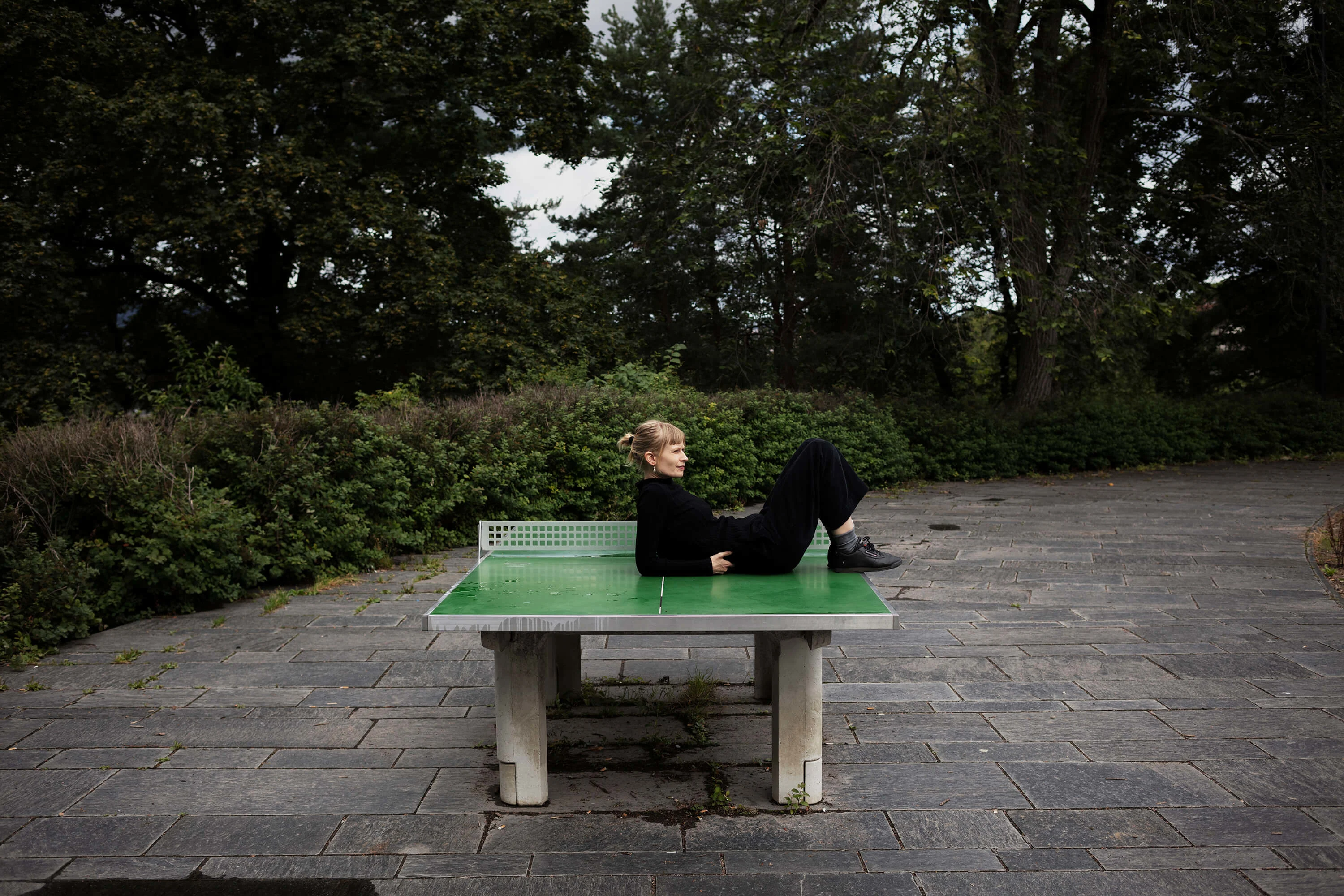
If I knew what I was searching for, I wouldn’t be sitting here.
The repetition of touring doesn’t sit well either. “We have these awkward moments between songs where you are not supposed to be in character but just ‘yourself’, whatever that means. I’ve always felt that to be very odd.” She bemoans how trained we are as an audience to recognize and enjoy only what we know, becoming people who just want to be fed the record, the hits. Jenny fights against this in unexpected ways. To date, she’s had dancers wrap themselves in Saran wrap, writhe in jelly-filled paddling pools, and paint portraits of her on individual easels. She once even had her band take a dinner break mid set, sitting at a table eating spaghetti and drinking wine.
“It was very awkward,” she says of that particular experience. “Half the people didn’t see anything, which was something we hadn’t taken into account.” But this is her element, operating in those gaps between conventional notions of what a musician is, or should be; a place where the audience knows it is part of the performance and takes interest in what is happening, and how. “I’m trying to make a live performance that’s an interdisciplinary piece rather than a concert, because I want to emphasise certain things even more. Rather than just playing the music, it’s important to show how people can exist together or reveal a little more of the process around how things are made. That to me has enormous value, at least right now.”

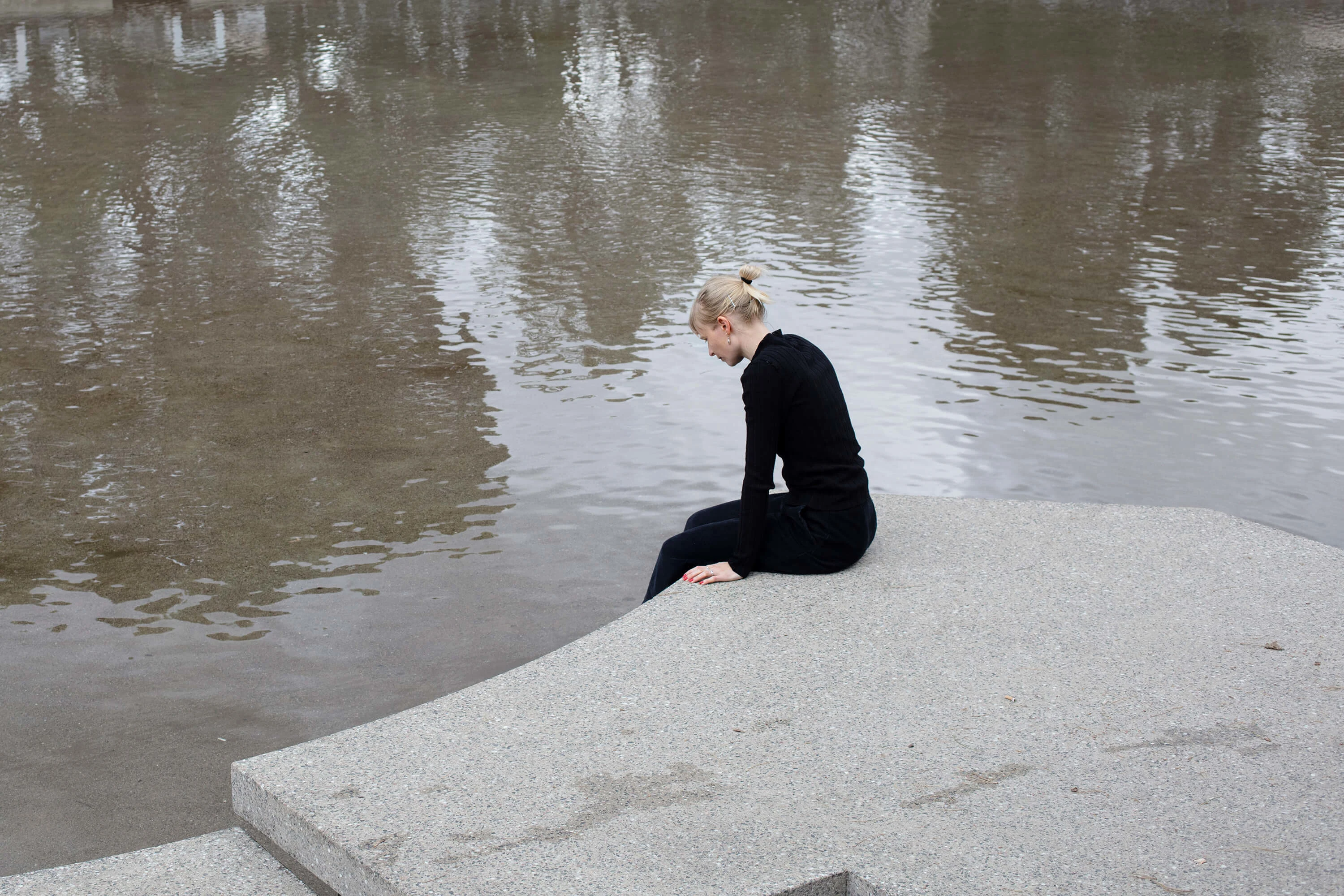
Jenny writes prolifically: novels, essays, even art criticism in a past life as a journalist. Her debut novel, Paradise Rot, was only recently translated into English. A new one, Girls Against God, will be published next year. Such writing is, she says, a more collaborative process than music due to input from an editor – something that doesn’t happen with her record label. Clarity and intuition guide her hand when working alone on lyrics, both of which were particularly acute during writing sessions for The Practice Of Love, her forthcoming seventh record. “I just had confidence that it was ready, like watching something unfold that I couldn’t see before,” she says of the speed with which the project came together. “Like parting leaves, and seeing what I’ve been looking for behind them.”
Conceptually it covers new ground, openly tackling what she calls the four Big Themes: love, death, life, the ocean. Previously, she’s poked around the surreal and the grotesque, abstract absurdism serving as a vehicle for ideas: Apocalypse, girl wrestled with literal and metaphorical rebirth; Blood Bitch deconstructed themes around menstrual blood and 1970s vampire movies. The Practice Of Love is a deep dive into more universal concerns such as growing old, intimacy, and our relationship to the earth. Here, again, Jenny has many, many questions: What is it to live and die? To practice love and care? What must we do to feel validated as living beings? What is your job as a member of the human race?

I say my truest, most human things when I write automatically.
Dense with ideas, the record functions like an inner dialogue, a multi-layered discourse on the human condition. Friends and collaborators surface throughout in both proper vocals and scraps of recorded conversations, each new voice and character enriching the record’s intricate emotional landscape. Jenny’s goal was to push her writing further, to create “a community of voices and tell stories about both myself and others simultaneously.” In this, she succeeds; some songs sound like eavesdropping on whispered intimacy, others pick at evasive truths regarding our shared humanity.
“Where is God?” she asks on opening track ‘Lions’. “She is an accident / Flesh in dissent” is repeated through ‘Accident’. Jenny wraps these constructs in quietly bubbling 90s trance music and synth sounds, music that in her mind is both sentimental and nostalgic; “things I imagined being played at the raves I was too young and too scared to attend,” she says in the record’s press release. There’s even hints of gentle jazz (‘Thumbsucker’) and ambient chillout (‘The Practice Of Love’) here, off kilter tangents that demonstrate her free-spirited playfulness as much as keeping the listener on their toes.
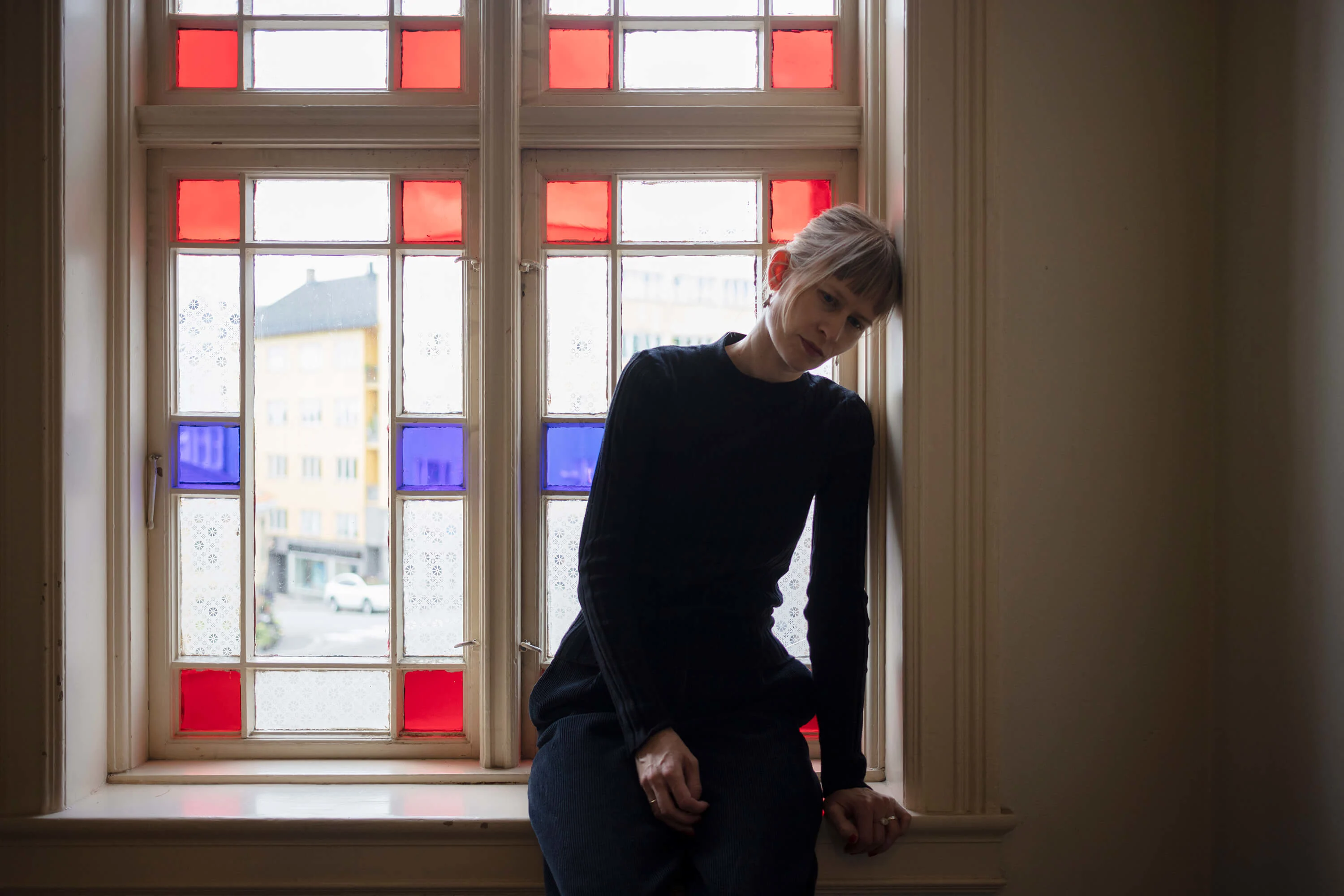
Forever restless, Jenny wants to challenge the very medium of pop songs themselves, exploring new forms of artistic communication to see where they might lead. “I want to use music as an investigation into how I can communicate something more open, maybe kinder and more empathetic,” she says. “Communicating in order to be able to listen to what comes back at you. That’s been a definitely theme in my recent work.”
What is it that she’s ultimately searching for? “If I knew that, I wouldn’t be sitting here; I would have found it already,” she laughs. “Maybe it’s universal love or peace. I’ve already said in a lyric that I just want to be loved. Perhaps that’s true as I say my truest, most human things when I write automatically.”
Besides, she insists, to ask such a question is to misunderstand why Jenny – why anyone – creates. “I’m just searching to expand. That’s enough, isn’t it?”

